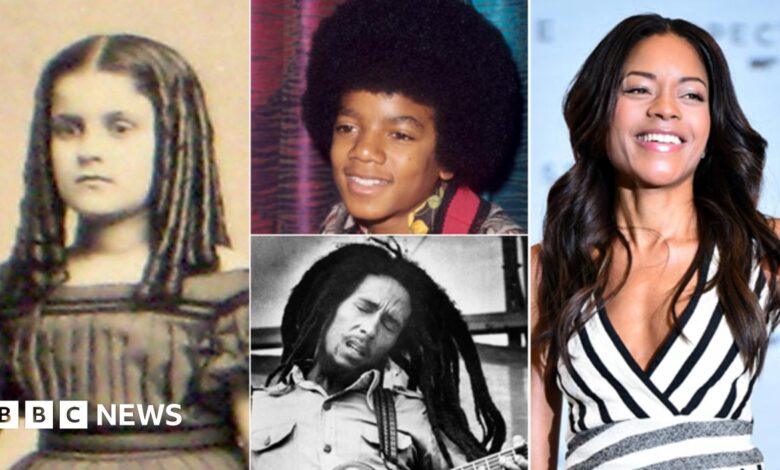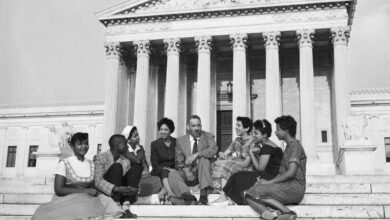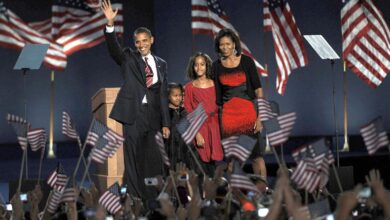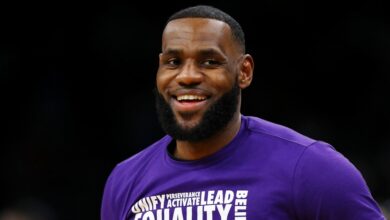How does black hair reflect black history?

Black hair care is now a major industry, conservatively estimated to be worth about £530m, external ($774m) last year.
However, there is often debate about whether some trends still symbolise a desire to fit in with a mainstream Western look, Mr Lynch says.
“Do we still feel like we’re compelled to appropriate white culture or is it now a choice, whatever’s convenient, whatever’s in fashion?”
Among women, hair extensions known as weaves have been popular but there is also a reported revival in natural hair – usually interpreted as styles not altered by chemicals.
“It’s a really important movement that’s going on and in America it’s a lot bigger than it’s over here,” says Dr Ashton.
“So if you go to the States, you see lots of African-American women with natural hair – you’re starting to see that more in this country but there’s still nowhere near the same number in Britain as there are in the States.”
Many are browsing online to learn more about natural hair care – knowledge of which declined among black communities in the West after slavery.
But changes in working patterns in the past 60 years, especially for women, means there can be less time to spend on maintenance, says Dr Ashton.
“I think one thing a lot of non-black people don’t realise is just how much maintenance African-type hair is. If somebody says I’m washing my hair tonight, it can be like a three-hour job – it’s an excuse for why you wouldn’t go out.”
HAIR runs until 31 August at the Museum of Liverpool.
Source link




